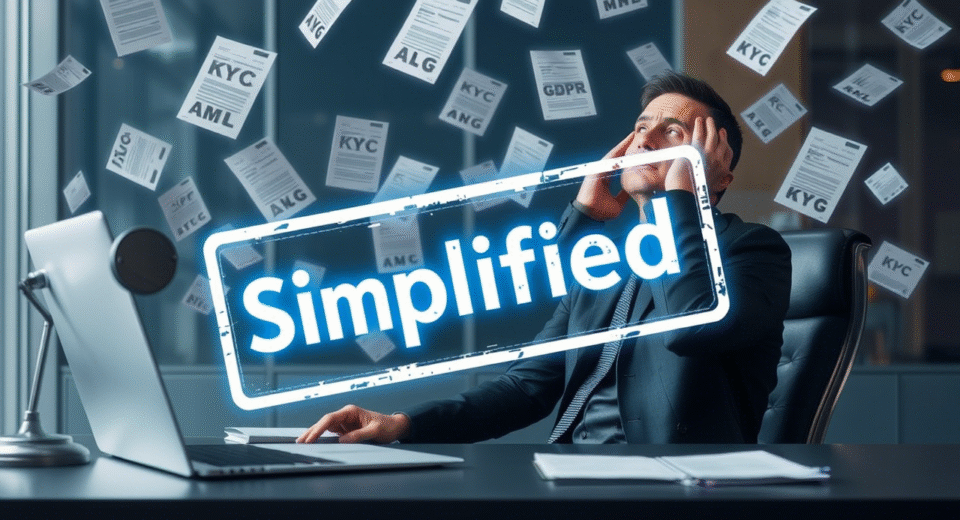Regulatory Jargon Demystified for Executives: A Survival Guide for iGaming Leaders
🧠 Introduction: Executives, It’s Time to Speak Compliance You’re not a lawyer. You’re not a compliance officer. You’re a founder, a board member, a CMO, or a CEO with P&L responsibilities, investor decks, and market expansions to worry about. But in iGaming?Regulatory understanding isn’t optional—it’s existential. Whether you’re entering a new market, negotiating a partnership, or handling an audit, legal and regulatory jargon is everywhere. And failing to grasp it—even slightly—can cost you licenses, revenue, or your company’s future. This is your no-nonsense, executive-level cheat sheet for understanding the most critical regulatory terms, stripped of fluff and legalese. 📜 Section 1: Licensing Acronyms You Can’t Ignore MGA – Malta Gaming Authority Malta is a Tier-1 regulatory hub in Europe. An MGA license is both credible and flexible—used by many top brands. UKGC – United Kingdom Gambling Commission The most rigid, high-stakes jurisdiction. UKGC doesn’t mess around—just ask any operator who’s lost their license. GGL – Gemeinsame Glücksspielbehörde der Länder (Germany) Germany’s relatively new central regulator. Think: ultra-strict, heavy on compliance, but essential for local access. AGCO – Alcohol and Gaming Commission of Ontario North America’s new darling. Ontario offers regulated iGaming access outside of the U.S. state-by-state grind. CGA – Curaçao Gaming Authority (new structure in 2025) The Wild West is over. Curaçao’s reform means real audits, real accountability. 💼 Section 2: Legal Compliance Terms Executives Must Know KYC – Know Your Customer Your player is who they say they are. This isn’t just a login—it’s identity verification at the core. AML – Anti-Money Laundering Preventing criminal funds from entering the system. RG – Responsible Gambling Are you protecting your players from harm? This goes beyond opt-outs and reality checks. PEP – Politically Exposed Person Higher risk due to potential involvement in corruption or public trust. GDPR – General Data Protection Regulation European law governing user data. Violations = fines up to €20M or 4% of global turnover. SOW / SOF – Source of Wealth / Source of Funds Where is the player’s money coming from? One proves the origin (salary, crypto earnings), the other proves the method (bank, wallet). 🧮 Section 3: Technical Standards & Certification ISO 27001 – Information Security Standard It’s the gold standard for data protection in gambling. GLI – Gaming Laboratories International They test and certify RNG fairness, game functionality, and technical stability. RTP – Return to Player (with regulation) Some jurisdictions require you to publicly list or cap RTP. 🕵️ Section 4: Audits, Reporting & Risk Flags SAR – Suspicious Activity Report Filed when a transaction doesn’t look right. AML Risk Matrix A system that scores player risk based on data points like deposit frequency, geography, and device changes. Affordability Checks The newest battlefield in player protection. You may be required to prove that your players can afford to play. REMs – Regulatory Event Metrics Reports you must send to your regulator—ranging from complaint volumes to self-exclusion trends. 📈 Section 5: When Regulation Becomes Strategy Let’s be clear: Compliance isn’t just a cost center. For forward-thinking executives, it’s a brand moat. Being licensed in Tier-1 markets gives you: 🔐 Executive Checklist: Are You Really Compliant? ✅ Do you have visibility into how KYC, AML, and RG are being implemented?✅ Are your compliance and marketing teams in sync on messaging and ad targeting rules?✅ Do you know your licensing jurisdiction’s 2025 updates (especially MGA, CGA, UKGC)?✅ Have you tested your response plan for a real audit or license challenge?✅ Can you explain your data protection and affordability strategy to a regulator—or a journalist? 🎯 Final Thought: Compliance Is Culture, Not a Checkbox For executives in the iGaming world, compliance isn’t a department. It’s a mindset. It’s knowing how regulatory frameworks influence: Master the jargon. Demystify the landscape. And use regulation as your strategic advantage—not your legal liability.







